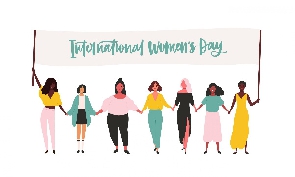Four Ghanaian scientific researchers are among 15 ‘Women in Science’ recognised globally on the International Women’s Day (IWD) celebration.
Tropical Disease Research recognized the women for championing research, mentorship and collaboration in scientific research and tackling infectious diseases in low and middle-income countries to overcome poverty.
The Ghanaians are Professor Margaret Gyapong, Prof Pascale Allotey, Prof Hanna Opokua Akuffo and Dr Ewurama D. A. Owusu, according to a release to the Ghana News Agency.
The rest of the scientific researchers, whose contribution spans 13 to 41 years of unalloyed and dedicated service to mankind, are Prof Uche Amazigo, Dr Clara Atieno Agutu, Prof Jacqueline Azumi Badaki, Dr Razia Fatima, Dr Atupele Kapito-Tembo and Prof Mary-Ann Lansang.
Others are Prof Lenore Manderson, Dr Brenda Apio Okech, Dr Atinuke Olaleye, Dr Lyda Osorio and Prof Rosanna Peeling.
Prof Gyapong holds Adjunct professorial and senior lecturer positions at Georgetown University, Brunel University and the University of Ghana.
She has supervised several Masters and PhD students.
She is a reviewer and Associate Editor for several international journals and has over 60 publications in peer-reviewed journals to her credit.
She is currently the Director of the Centre for Health Policy and Implementation Research in the Institute for Health Research at the University of Health and Allied Sciences (UHAS) in Ho.
“Don’t expect any special treatment because you’re a woman. Work hard, pursue excellence, and have high standards in all that you do,” she said.
“Don’t put your whole life on hold for marriage and children; pick up and move on. Remember: Quitters never win.
Of course, there were calls for proposals that particularly encouraged women to apply. However, I am sure I got those grants not because I was a woman but because the proposals were technically sound.”
“Be the architect of your own destiny,” she added.
Dr Soumya Swaminatham, WHO, Chief Scientist, TDR Special Programme Coordinator, said “By telling these stories, we are celebrating TDR Global’s unique women scientists, their incredible achievements, and the impact they have made in their communities as well as in their scientific fields—sometimes in astonishing and unplanned ways.”
She said scientific research should not be conducted in isolation; researchers, practitioners and policy makers should work together and build collaborations to fight diseases. That is precisely what TDR Global is here for—finding experts and building collaborations.
“We are looking forward to expanding this research and networking platform to inspire and connect members of the TDR Global community who are passionate about finding solutions to infectious diseases of poverty through research and innovation.”
TDR recognises the massive role that women play in the scientific community, whether taking on the role of researcher, scientist, anthropologist, or academic, these powerful women each have a story to tell that will uplift and encourage not only young and upcoming researchers, but anyone that pursues a career in science.
The team at TDR Global As scientists and researchers, “we are quite used to drawing up hypotheses, generalising findings, creating inferences, and setting up research methodologies but the compendium is a showcase and celebration of remarkable women, and perhaps, someone might see the shared humanity that sparks an idea, interest, or solution to a pressing problem and that’s where IWD comes to play.”
TDR, the Special Programme for Research and Training in Tropical Diseases, is co-sponsored by UNICEF, UNDP, the World Bank and WHO.
Regional News of Tuesday, 9 March 2021
Source: GNA

















